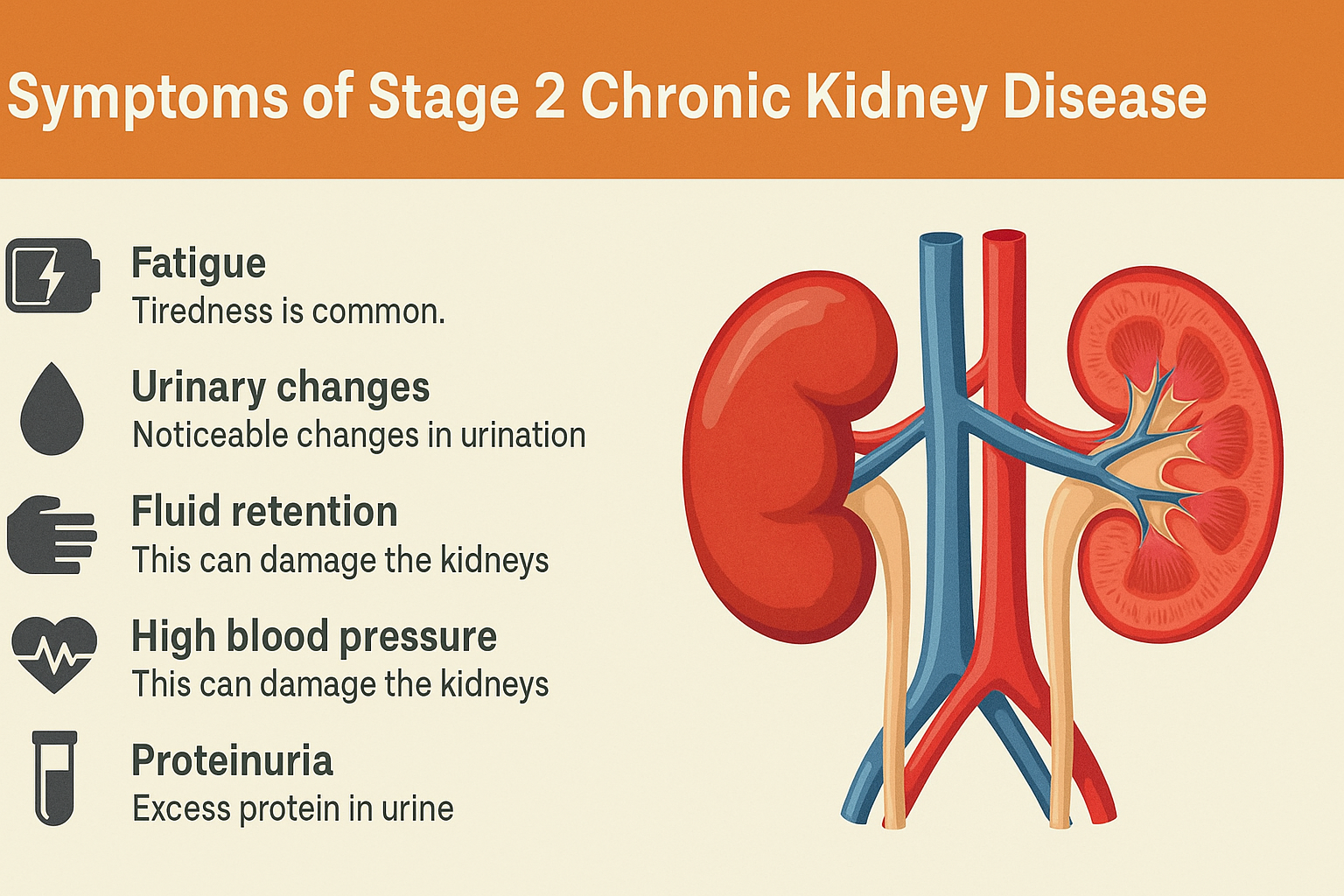Symptoms of Stage 2 Chronic Kidney Disease
- Fatigue: Tiredness is common. The kidneys aren’t making enough erythropoietin, leading to fewer red blood cells.
- Urinary changes: Noticeable changes in urination can signal Stage 2 CKD. This includes more frequent urination, especially at night, and changes in urine color or smell.
- Fluid retention
Symptoms of Stage 2 Chronic Kidney Disease
- Fatigue: Tiredness is common. The kidneys aren’t making enough erythropoietin, leading to fewer red blood cells.
- Urinary changes: Noticeable changes in urination can signal Stage 2 CKD. This includes more frequent urination, especially at night, and changes in urine color or smell.
- Fluid retention: The kidneys may struggle to remove excess fluid, causing swelling in the hands, feet, and ankles.
- High blood pressure: This can damage the kidneys. Stage 2 CKD might require medication to control blood pressure.
- Proteinuria: This is excess protein in urine. In Stage 2 CKD, the kidneys can’t filter protein properly. A urine test can detect this.
Prevention Tips for Stage 2 Chronic Kidney Disease
1. Manage Blood Pressure
Keep blood pressure in check to prevent kidney damage.
- Low-sodium diet: Limit salt to control blood pressure.
- Healthy weight: Losing weight can help.
- Regular exercise: Stay active to lower blood pressure.
2. Control Blood Sugar
Prevent kidney damage by managing diabetes.
- Balanced diet: Eat nutrient-rich foods and limit sugar.
- Take medication: Follow doctor’s advice on diabetes meds.
- Monitor levels: Regularly check blood sugar.
3. Quit Smoking
Smoking worsens kidney damage. Quitting is vital. Get help if needed.
4. Stay Hydrated
Drink enough water to support kidney function. Aim for 8 glasses a day.
5. Limit Alcohol
Too much alcohol harms kidneys. Stick to one drink a day for women, two for men.
6. Limit Energy Drinks
Energy drinks can cause kidney stones. They’ve got lots of sugar and sodium. Drinking enough water helps, as does avoiding these drinks.
Conclusion
And there you have it! The symptoms of Stage 2 CKD explained in a nutshell. Remember, if you have any of these symptoms, or are worried about your kidney health, it’s best to consult a healthcare professional. Take care of your kidneys, and they’ll take care of you!
Disclaimer: This blog article is for information only. It is not medical advice. Always consult with a healthcare professional for personalized diagnosis and treatment.

